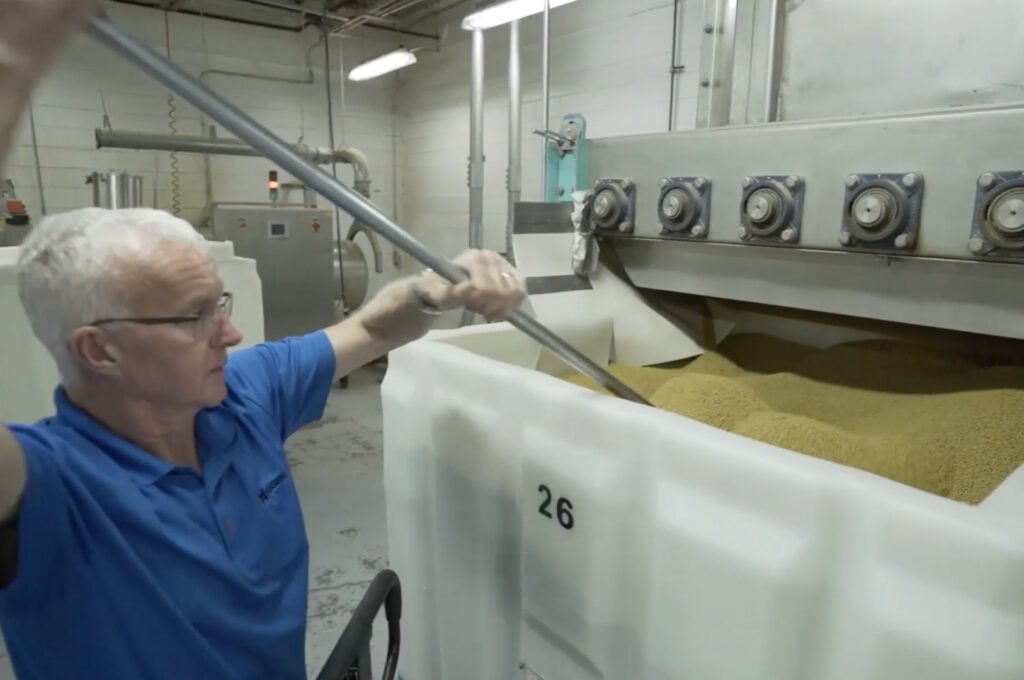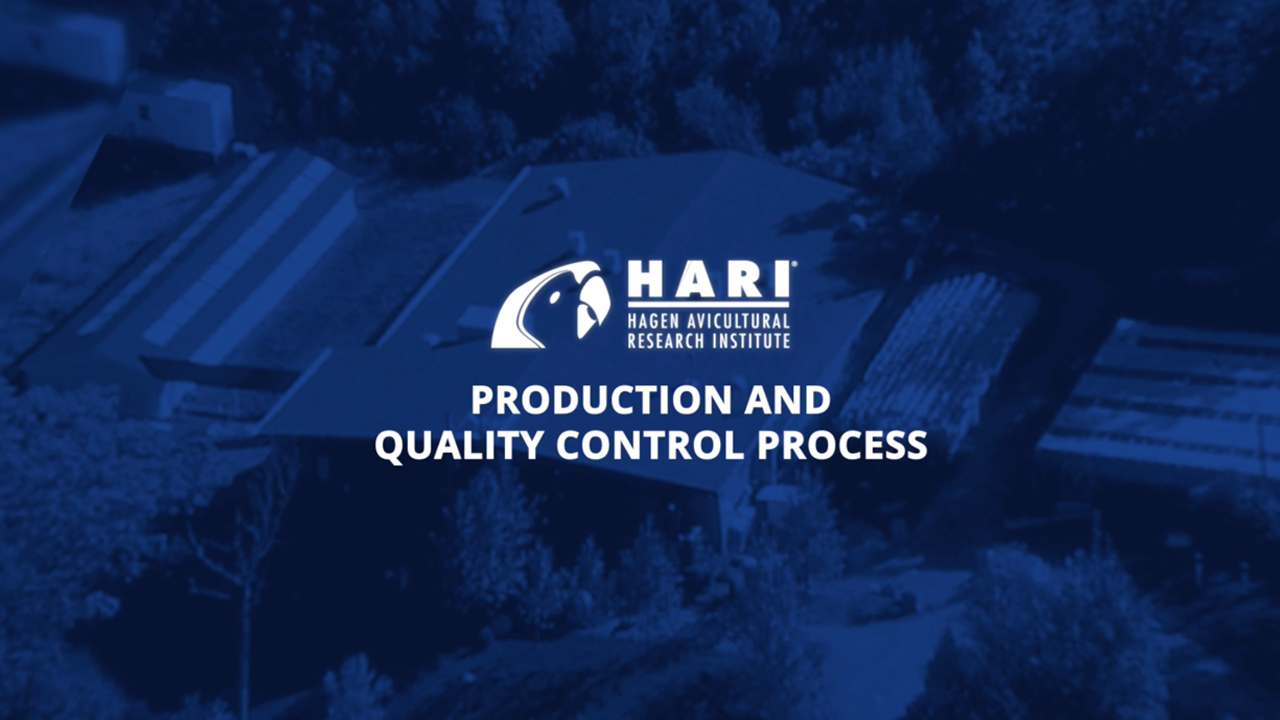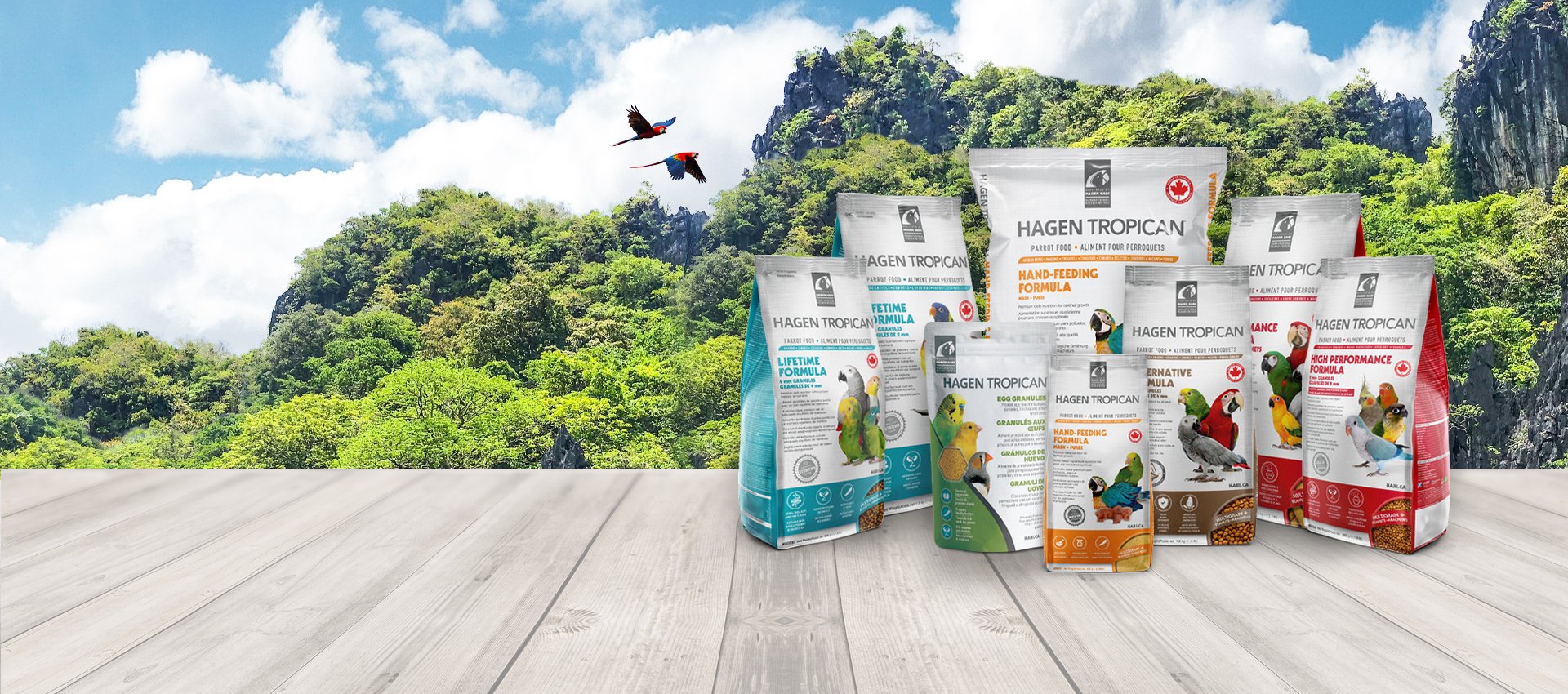Your cart is currently empty!
HARI Official Brand Site
The Development of Pet Products
Creating a successful pet product involves more than just formulating a recipe. Food scientists must consider the chemistry of food components, including proteins, carbohydrates, fats and water, and the processing reactions they undergo. Their goal is to produce products that are not only safe and nutritious but also flavorful. Efficiency and longevity are equally important, as they seek ways to improve production processes, extend shelf life, and preserve and package products. Additionally, staying on top of food trends and emerging technologies is crucial to success, as consumers’ preferences and expectations are always evolving.
Ensuring Quality Control for Hagen Industries
For Hagen Industries, strict quality control measures are crucial to success, with a focus on food safety as the top priority. To achieve this, it is essential to test for any harmful bacteria, yeasts or molds on and in the manufacturing equipment and ingredients before, during and after production. Additionally, internal audits are conducted to prepare for external auditing authorities to review the factory and its processes.
Products go through rigorous testing to ensure that they are of the highest quality and free of contamination. The on-site laboratory, equipped with state-of-the-art technology, is staffed by a team of five highly skilled food science technicians who test all incoming raw materials and finished products for consistency. Strict quality assurance protocols involve hourly sampling of products from the packaging machines to ensure compliance with their product specifications and shelf-life requirements. Additionally, their track-and-trace product monitoring system extends down to the individual bag level, providing unparalleled transparency and accountability.
Food Safety: 3-step Quality Control Process
To provide your cherished feathered companions with safe, reliable, and high-quality bird food, each batch of HARI product undergoes a strict 3-step Quality Control process before distribution.
Nutritional/Chemical Assay – Raw Material Control
At Hagen Industries, raw material ingredients are placed on hold until Quality Control (QC) releases them for use. Their process includes the Canadian Grain Commission Sampling System Standard, where they sample the materials and perform inspections, analyses, and nutrient content tests. They also check for the presence of aflatoxins, which are poisonous carcinogens produced by certain molds, and residual pesticide contamination.
Biological Assay – In Process Control
The ingredients are mixed/blended according to their specific written recipe formulas and then passed over rare earth magnets. In the case of extruded material, prior to grinding the ingredients, the raw materials pass through a metal detector and are then milled and thoroughly blended according to the formulations’ recipe.
The final blend is then ready for the extrusion process. The formed kibble is cooked at a minimum core temperature of 90° C (194° F) to ensure harmful bacteria are killed. Core temperatures are logged throughout the process and reviewed by QC to ensure cooking temperature is reached and maintained during every extrusion run. To check for moisture and water activity, samples are taken and inspected at a minimum of once every hour. To reduce moisture levels and prevent mold growth, the kibble is then air-dried to an ambient temperature of 10° C (50° F).
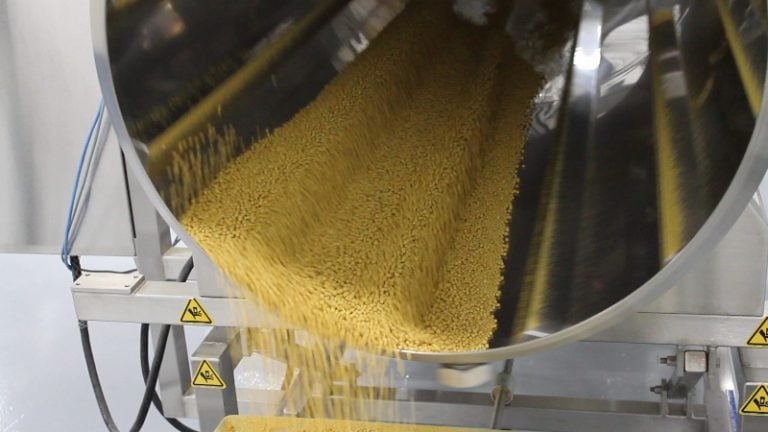
The seed mix and/or extruded formula batch undergoes sampling by two laboratories. The first laboratory, which is independent, conducts microbiological and chemical analyses. The second laboratory, located within Hagen Industries, analyzes key nutrients and moisture levels. An external laboratory is called in for verification whenever necessary. Product is put on hold until the results are reviewed and released by the QC department.
Hand-Feeding Formula: From Extrusion to Granulation
The extruded kibble for the Hand-Feeding Formula is further processed into its final mash form by using a specialized vertical mill. Samples are frequently taken every 20 minutes to ensure that the particle size distribution is up to specifications, and that the viscosity building properties are within the acceptable range.
Quality Control Procedures for Tropican and Tropimix
To ensure that every batch of Tropican and Tropimix meets the guaranteed analysis, they conduct in-house testing as well as utilizing independent labs to analyze moisture, protein, and fat content. These tests aim to achieve the closest levels to the guaranteed analysis, considering natural biological variation in food crops. Additionally, samples from each production stage are saved for reference and included in our permanent stability program.
HARI Flock Feeding Trials
After production, samples of the now-ready-to-be-packaged kibble are put on hold once again before being sent for testing. The samples undergo rigorous testing, including evaluation for moisture levels, nutritional content, and feeding trials on live parrots at the HARI facility. Each lot sample arrives with a certificate of analysis and is documented with the date testing begins, as well as the room, cage, or individual parrot involved in that feeding trial for the specific lot sample.
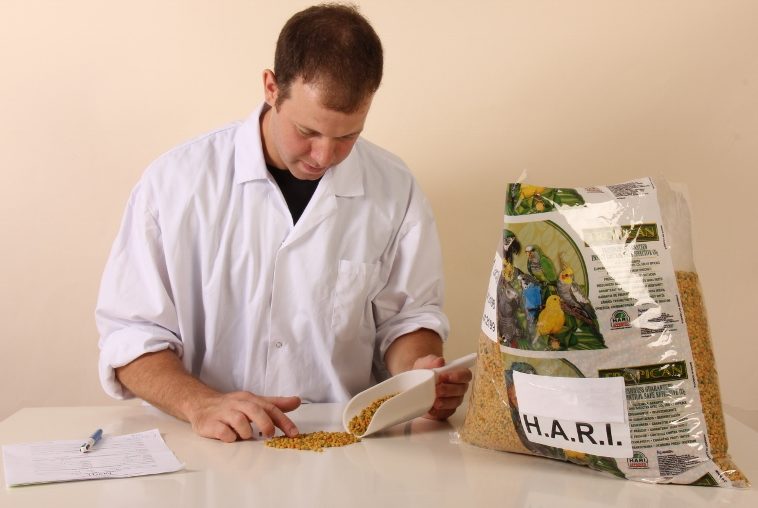
Quality Assurance Measures for Packaged Food Production
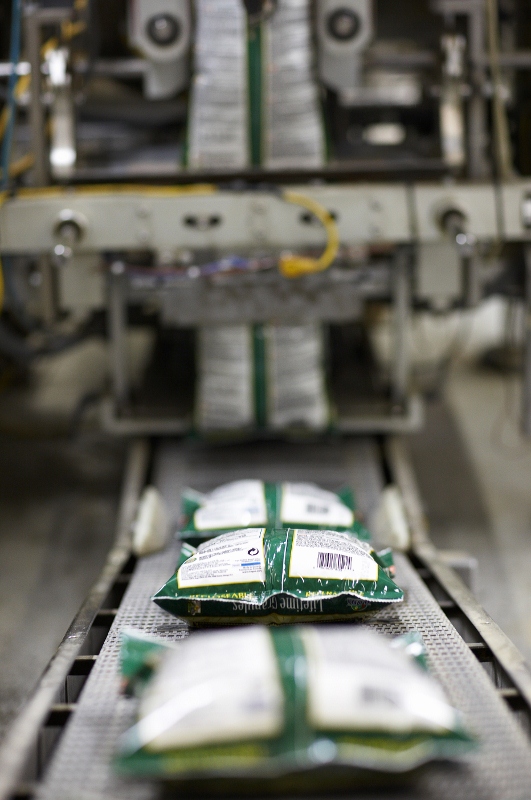
Here’s a quick rundown of the process that our packaged food products undergo to ensure their quality and safety:
- Once samples are declared safe and released from hold, the packaging lines are cleared.
- The initial bags produced are used to flush out any remaining particles from previous products in the system.
- Inspections are conducted by both the operator and QC to verify that bags are free of contaminants.
- Production then begins, and finished products are packaged and flushed with CO2 gas to maintain freshness, vitamin potency, and inhibit insect growth.
- Each bag is coded with a batch number and date to guarantee quality assurance and traceability.
- Lastly, every individual package goes through a metal detector before leaving the facility, ensuring that no metal particles have accidentally made their way into the food.
Safeguarding the HARI Flock
To minimize interference or variability within the flock during HARI feeding trials and quality control procedures, the HARI team maintains optimal hygiene practices in the cages, breeding rooms, and accessories. The team is committed to providing the highest level of care to the birds in the research and monitoring program, which is vital for obtaining accurate results. It’s worth noting that the physical and/or psychological well-being of the birds in the HARI flock is never compromised during quality assurance feeding trials. Additionally, the team takes into account the individual needs and preferences of each bird before conducting any quality assurance tests.
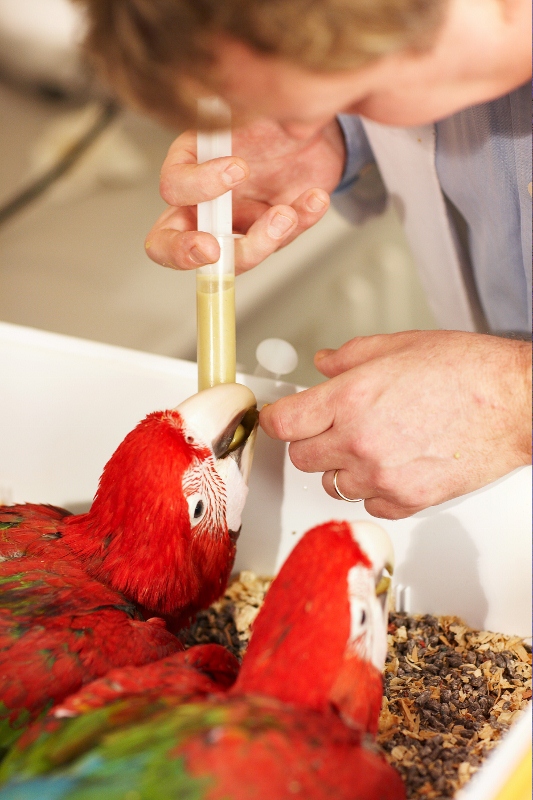
Before feeding the samples to the birds in the colony, the results of the microbiological analysis are double-checked to ensure the safety of the samples. The analysis should not show any presence of harmful bacteria, including E-coli and salmonella. An inspection is conducted to check the product’s general appearance, the amount of dust and crumbs, the presence of products from another batch and/or any objects. Finally, observations are made regarding the texture, color, scent, shape, size, taste, and other characteristics of the sample.
Here are some factors that are taken into account before providing samples:
- species
- age
- health condition
- life-stage
- time of year
- environment
- ambient temperature
- preferences
Here’s what happens during the feeding trial:
- Observations are recorded and photographed for each bird involved in the trial.
- If any abnormalities or causes for concern arise (such as irregular droppings or changes in the bird’s appearance), the bird is closely monitored and may undergo testing.
- Any test results are shared with QC to ensure quality control.
Safety Protocol
Reference samples of every batch are kept for the permanent stability program, export programs and for reference in case of concerns. They are kept for the entire shelf life of the products.
Transparency and Safety in Our Food Processes
While we strive for perfection in our food safety practices, we acknowledge that no process is entirely foolproof. In the event that our food safety practices are called into question, we will immediately notify the public and take corrective measures to ensure the safety of your beloved feathered friends. If a HARI flock member falls ill during a feeding trial, we will consult our avian veterinarian immediately. In case of a bird’s death, we will conduct a thorough gross necropsy (with histopathology) to determine the precise cause of death. The sample will remain on hold until the results are obtained and the food is cleared for consumption.
HARI Foods: Complete Vertical Integration in Action
- Diet Formulation (M. Hagen),
- Production/QA/QC (Hagen Industries),
- QC & Feeding Trials (HARI),
- Distribution (Hagen Group + Global Distribution Network to Breeders & Conservation sites).

